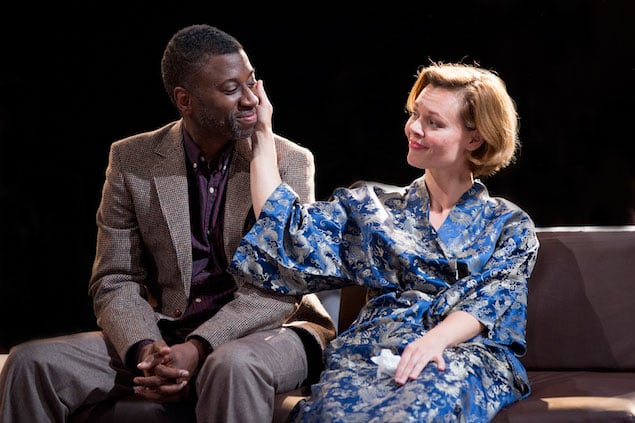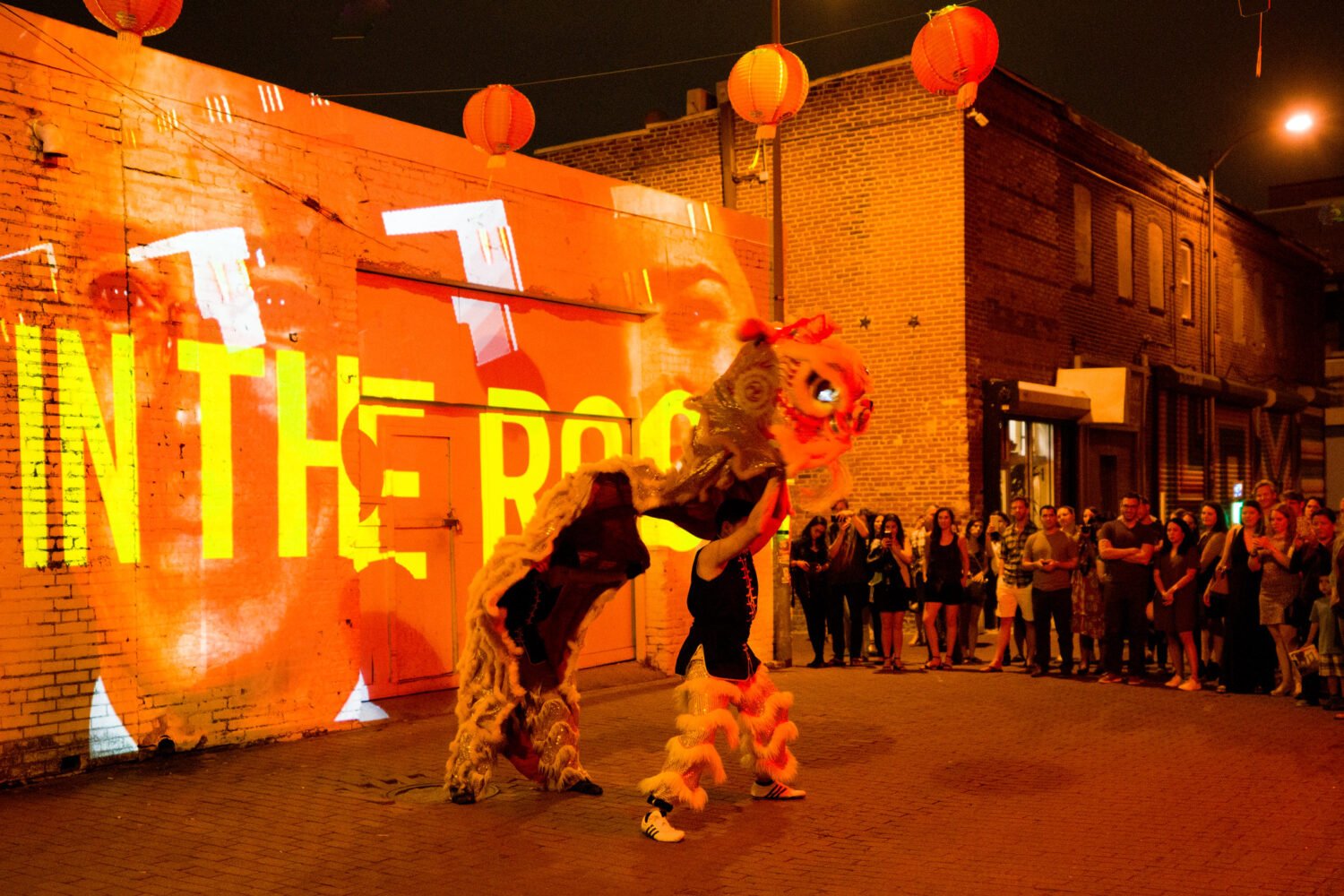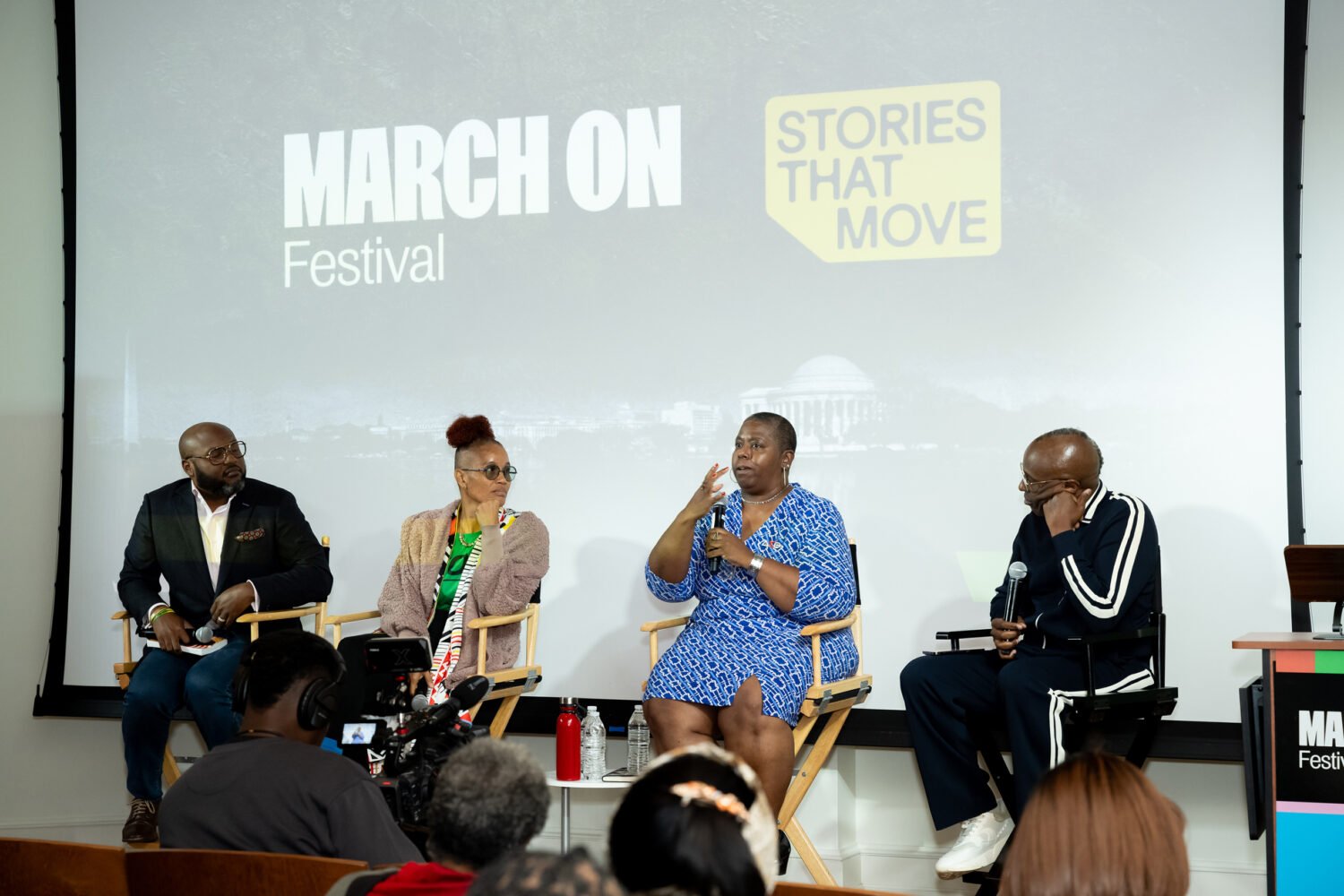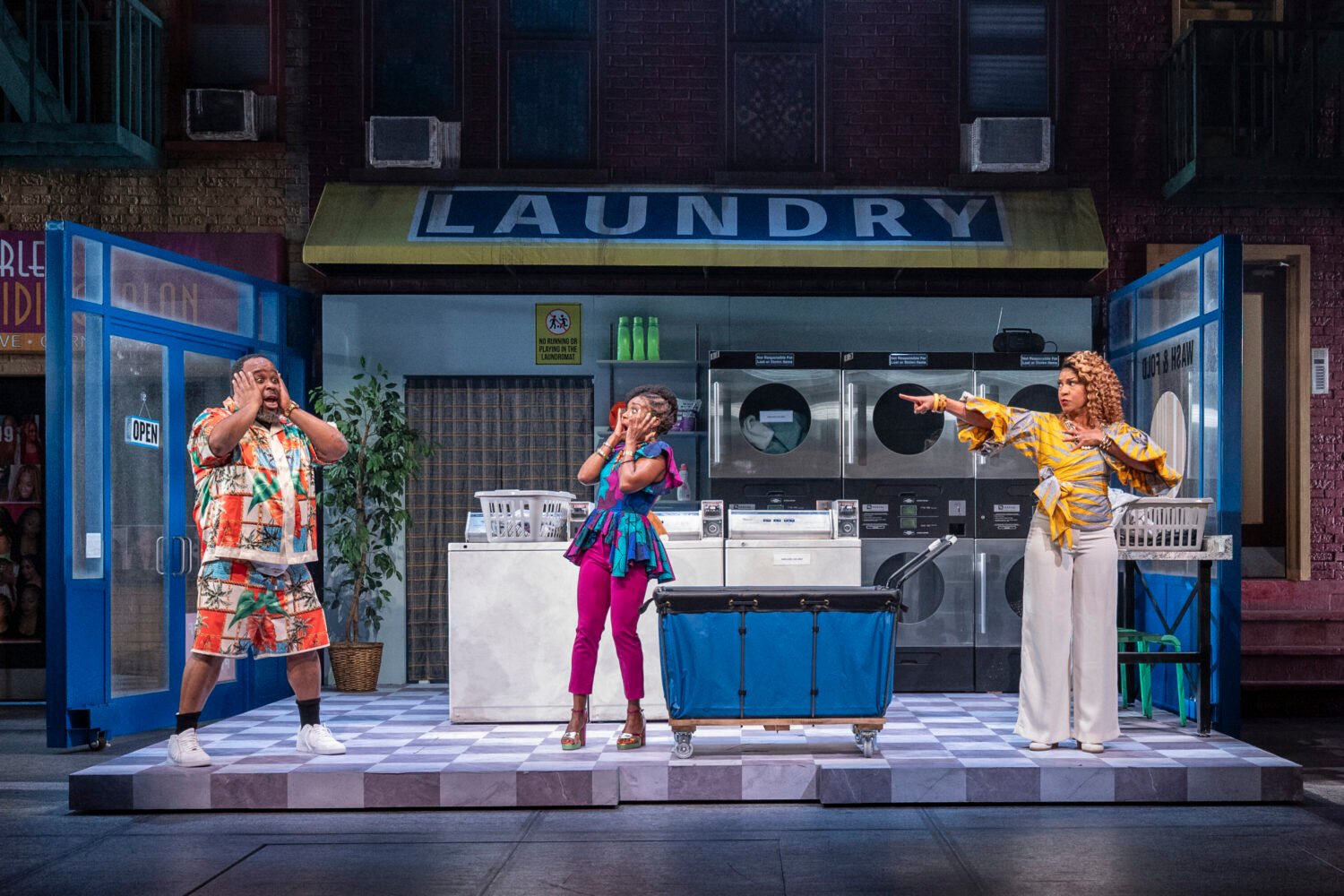
If someone ever made a list of all the fascinating, complicated Englishmen who are
delightful to spar with but unbelievably difficult to have as close relations, the
resulting piece of paper would probably stretch from Buckingham Palace to the moon
and back again. Henry, the protagonist of
Tom Stoppard’s
The Real Thing, is a charming but irascible polemicist in the vein of a Christopher Hitchens or
a Kingsley Amis, but he’s also very much the voice of Stoppard himself. He loves,
he scolds, he plays the fool, and he attempts to define the gap between feeling something
and writing about it in a way that’s occasionally brilliant and occasionally tedious.
Watching Studio Theatre’s production of
The Real Thing, which debuted in 1982 and had a Tony-sweeping Broadway revival in 2000, it’s clear
that something has been lost since the play first featured Henry expounding his theories
on love and literature. In the ’80s, the decade machismo never recovered from, the
concept of a man discussing his feelings so frankly must have seemed breathtaking.
In 2013, when even an NFL star weeps openly,
Henry’s postulating feels less relevant than it once did.
In Studio artistic director
David Muse’s production,
Teagle F. Bougere (last seen at Studio in
Invisible Man) plays Henry, with the excellent, magnetic
Caroline Bootle Pendergast as his wife, Charlotte. Charlotte is performing with Max (Dan Domingues) in a play written by Henry, in which Max’s character confronts Charlotte’s character
about her infidelity. But the real intrigue lies in the extramarital affair between
Henry and Max’s wife, the spirited Annie (Annie Purcell), whose idealism places her in sharp contrast with Charlotte’s world-weary cynicism.
(All characters deliver strong English and Scottish accents, thanks to dialect coach
Gary Logan.)
Part of
The Real Thing’s fun is the way it plays tricks on the audience, presenting one scene from a “play,”
followed immediately by another scene that’s actually “real” (although it is, of course,
also from a play). Presented in the round, the production does little to help the
audience distinguish life from art, with the actors manipulating furniture on
James Noone’s circular set to create different locations. The show benefits from
Matthew Nielson’s sound design, which showcases Henry’s idiosyncratic record collection and his embarrassed
love for pop music when he knows someone of his literary stature should be listening
to Wagner, or at least Bach.
Integral to the production is Bougere’s layered performance, which makes Henry come
off as irrepressibly charming, difficult, infuriating, and somehow vulnerable. The
foil to his multifaceted character is Brodie (Tim Getman), a Scottish activist and ex-soldier whose pigheaded egotism and lack of sensibility
places him in sharp contrast with Henry’s lengthy pondering, but also makes him something
of a wasted plot point. The play is almost three hours, and it’s hard not to see the
Brodie subplot as a distraction, even if it enables some of Henry’s best lines on
the subject of writing. (Writers may not be sacred, he says, but words are: “Innocent.
Neutral. Precise.”)
Also something of a distraction is Debbie (Barrett Ross), Henry’s teenage daughter. Given Henry’s dedication to manipulating words to such
magnificent effect, it’s hard not to wish Stoppard hadn’t pruned his play a little
more carefully. The production can drag, especially in the overlong second half. But
for those in love with language, or those in love with love, this is one Englishman
worth wrestling with.
The Real Thing
is at Studio Theatre through June 30. Running time is about two hours and 40 minutes,
including one intermission. Tickets ($49 to $64) are available via Studio’s website.
















